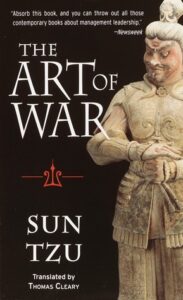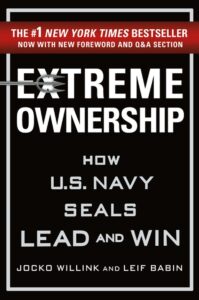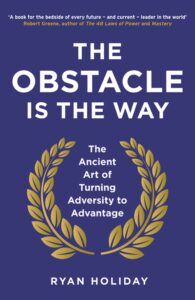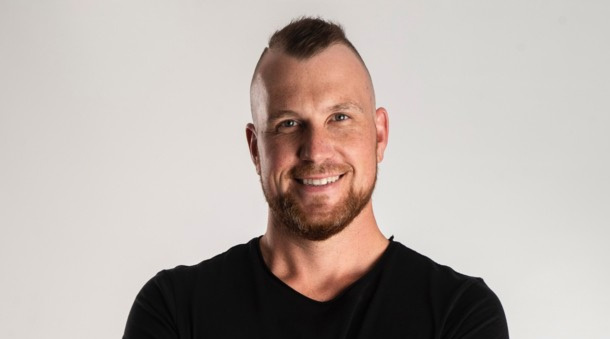Tencent Africa CFO Tramayne Monaghan shares three of his favourite reads.
I try to read as much as possible. Not because it is cool, or my mom made me do it, but because I have learnt that we tend to be the average of the five people we spend the most time with. In a world awash with content and great minds, I want my top reads to stand out.
Here are three of the books that changed how I see the world:
The Art of War – Sun Tzu

This book lends itself to a more aggressive style by its very name. However, it’s about the idea that everything in your life can be seen as a war.
Even attempting to create a positive habit like running is a war. This becomes a war against your unhealthy tendencies or against laziness. The book assists with techniques to win the war – or even elect not to fight it. If everything is a war, are you prepared? Can you win without even going to battle?
Everything is war.
Principle: Winning Quickly
Never let things go on for longer than they need to. This lesson pertains to war in that the more time you waste, the higher the likelihood that your enemy will be prepared for you. Do not let problems simmer, do not let tasks stay undone for ages. List your most significant challenges and attack them with purpose.
Extreme Ownership – Jocko Willink and Leif Babin

This book reframes leadership into simple tenets. It teaches the humility and honour of leading, juxtaposed with extreme responsibility. It is both not about you and all about you. The Dichotomy of Leadership (Jocko’s other book) is borne out of these very thoughts.
Above all, the idea is that leaders need to be brutally honest with themselves. This realistic view of themselves requires identifying their weaknesses and ego and freeing themselves of them.
If something affects you, own it. You cannot blame others for your shortcomings.
Principle: Extreme Ownership
What happens if we stop whining or complaining? The world is not out to get us, but bad things can happen. This leadership lesson is about taking ownership and accountability. As leaders, we are responsible for everything. The core principle to take away is identifying the voices in your head, giving you reasons why “it is not my fault” or “I cannot do it”.
Leaders who stand up, take accountability and are authentic are leaders who will be followed. I have spent the last two years trying to install this. It is not always easy, but the relationships I have built with the people I have the honour of leading has been worth it.
The Obstacle is the Way – Ryan Holiday

This book reframes reality and teaches the knowledge of understanding what you can and cannot control. This mental framework will allow you to focus on the actions needed to overcome the problems in front of you.
The Stoics teach that you need to master the art of managing your own perceptions, act wisely, and stay strong even in the most demanding circumstances. It takes skill and discipline to alter perceptions, separate reliable signals from deceptive ones, and filter out fear. This book will teach you how to develop that discipline.
An obstacle is merely an opportunity to train yourself.
Principle: Memento More
This Latin adage is one I have thought about putting on my own body in tattoo ink. It simply means, “Remember, you must die.” Death is not pointless. This section teaches that the finite amount of time we have needs to be wielded carefully. Use the fleeting nature of time as a value to spur the understanding that there is nothing else nearly as hard left. Live and act as you know; you must die.
Should you read these?
I have been told these books can be a bit aggressive, but life is not a box of chocolates. These lessons are rooted in great leaders and thinkers’ studies and learnings, but the overarching address is control. Control of ourselves and acceptance of the environments in which we operate are critical skills.
Read these books if you believe you must be in the control of your own destiny.
These books were the single most significant contributor to who I am as a leader. While the Stoics contributed to my mental style, The Art of War became my strategic thesis. Extreme Ownership contributed to my “how” and my execution standards.
They allowed me to find my voice as a leader, especially when I was not born as one. These frameworks allowed me to thrive in high-pressure scenarios, and grow myself as I grow others.











